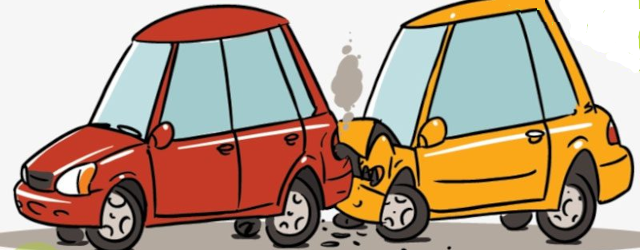 Question: I'm curious about the act of brake checking a tailgater. Suppose a driver is following a vehicle closely (about 1 second distance), and the front vehicle is travelling below the municipal speed limit, maybe 35 to 40 km/h.
Question: I'm curious about the act of brake checking a tailgater. Suppose a driver is following a vehicle closely (about 1 second distance), and the front vehicle is travelling below the municipal speed limit, maybe 35 to 40 km/h.
This is all happening on a quiet August Sunday at 10:30 pm with the road being dry and well lit.
There is not a single other moving vehicle in a 300 meters radius when the driver of the lead vehicle suddenly comes to a full sudden stop in the middle of the road. This causes the following vehicle to "kiss the bumper".

Exact sequence of events:
- 40 km/h, following at 5 meters
- brake light appears on lead vehicle for about <1 second, 35 km/h, distance = 3 m
- brake light disappears, lead vehicle makes a small "lean" as to right turn, distance = 2 m
- lead vehicle slams brakes, following vehicle slams brakes, bumpers kiss
Yes the lead vehicle driver is a bona-fide psych warfare expert.
When asked "Hey! Why did you stop right here for no apparent reason, causing me to rear-end you?" the reply was "Hello there! You were tailgating me!"
I can see the ICBC's position (follow too closely - against the rules) it's the following vehicle's fault for collision.
But I was wondering if these supposed actions (also known as brake checking) would fit under an "assault with a deadly weapon" criminal charge, since harm is caused and the intent to cause harm is admitted, provided the events leading to the collision are video recorded, and the exact reply (admission of action) of the lead driver is also on camera?
It's obviously a bit harsh if not ridiculous to ascertain such heavy charge, but consider the mental process of the lead driver, as the next time they may have no problem doing the same to a van full of people, or a transit bus, or a hazmat truck filled with nitroglycerin... whatever the case may be, the actions of the lead driver are not in good faith imho.
(Something that happened to me about 5 years back - taught me a lesson that people don't actually mind getting into an accident sometimes. Luckily the kiss didn't result in any damages to the lead vehicle, so no ICBC claim was put forth, I've duly reported the accident with-in 24 hours and made a statement, and was given the answer as to the probable fault distribution - 100% the following vehicle. My only accident - good lesson though)
Brake Checking in Real Life
It happened on highway 97 south of Penticton in an 80 km/h zone many years ago. The driver in front slams the brakes, the driver following too closely collides with the vehicle in front. Everyone moves off the road that the lead driver gets out of his vehicle and points out the bumper sticker on his car: "I brake for tailgaters!"
Driving Without Reasonable Consideration for Others
I completed and distributed the MV6020 (or MV104 as it was then known) collision report forms and added a drive without reasonable consideration for others ticket for the lead driver and a follow too closely ticket for the tailgater.
I have no doubt that ICBC did not find the following driver totally at fault. I'm sure the result would still have been the same without the bumper sticker.
Dangerous Driving
Had someone been hurt or killed, there would likely have been criminal charges of dangerous driving or criminal negligence against the braking driver.
Safe Following Distance
40 km/h is about 11 m/s. Given your scenario of good driving conditions, the two second rule would dictate a following distance of about 22 metres.
Brake Checking is a Stupid Thing to do
Jamming on the brakes to deter tailgaters is even more stupid than tailgating. If you don't like being tailgated, slow down and move over. Let the idiot by. It's a small inconvenience to remain safe.
Share This Article
This scenario is why we (society) would benefit by having a General Prudential Rule in the MVA, which is found in the COLREGs used in the maritime world.
To summarize, all parties are required to do whatever is feasible to avoid a collision, and bear some responsibility should a collision occur unless they can prove they took all reasonable steps to avoid said accident.
- Log in to post comments
- Log in to post comments

Let's have a General Prudential Rule in the MVA